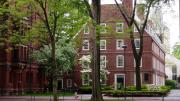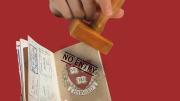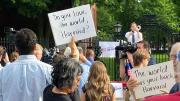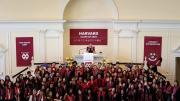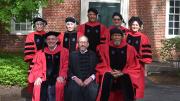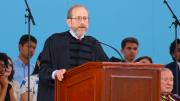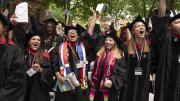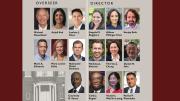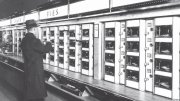Harvard has filed an objection to the National Labor Relations Board’s (NLRB) tentative decision last month to call for a new election in the University’s graduate-student union case. From here, the path remains unclear: a new election could take place as early as next fall, or, if the case gets tied up in more legal hearings, much later, or not at all.
In April, the officer hearing the case ruled that Harvard had excluded many students from its eligible voter list who should have been eligible for last November’s election, and that a new election should therefore take place if the final vote count does not result in a victory for the union. That decision has not yet been approved by the NLRB’s Boston regional director. The union has argued throughout the case that Harvard’s exclusion of some eligible voters from the voter list created confusion over eligibility and discouraged many students from voting. The University has objected on the grounds that a new election would ignore the results of last November’s election, and that most eligible voters who had been left off the list had still voted.
“Questions about the list of eligible voters—the basis for the Harvard Graduate Students Union-United Auto Workers (HGSU-UAW) claim for a new election—ignore the facts,” University spokesperson Anna Cowenhoven wrote in a statement. “Thousands of students voted, including a majority of those found by the NLRB Hearing Officer to have been omitted from the voter list, and most of those ballots have already been counted. Students were highly engaged, and after nearly two years of organizing on campus by the HGSU-UAW, thousands voted in the November 2016 election—a majority in opposition to unionization.” University provost Alan Garber largely restated that argument in an email to the Harvard community this morning.
If Boston’s NLRB regional director John Walsh approves the recommendation to hold another election, Harvard would likely file objections again, with the national office of the NLRB. The board could either decline or agree to review the case. If the national board finishes its review over the summer, the earliest a new election could be scheduled would be in the fall. Depending on the proceedings, a final decision could also come much later.
Harvard’s protracted union election process now increasingly resembles those at other universities: at Yale, where a majority of students in some departments voted to unionize, organizers have begun a hunger strike to force the administration to begin contract negotiations. Administrators there are still challenging the legitimacy of organizers’ department-by-department approach to unionization. Yale has asked the national office of the NLRB to review its case, and if the board agrees to hear it, that, too, could put a hold on cases at Harvard and other universities.
All this unfolds against the possibility that a reconstituted NLRB under President Donald Trump might revoke the right of private university students to unionize altogether (Trump has yet to fill two empty seats on the board), making the elections at Harvard and other universities irrelevant. If that happens, it would mark the third time in a little more than a decade that the NLRB reversed its position on the issue—an unusual way to do business, even for a board that frequently changes its political orientation.
